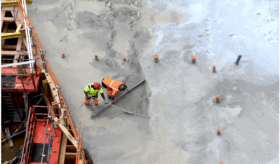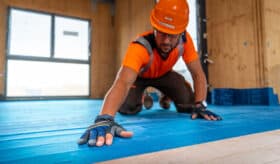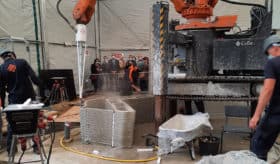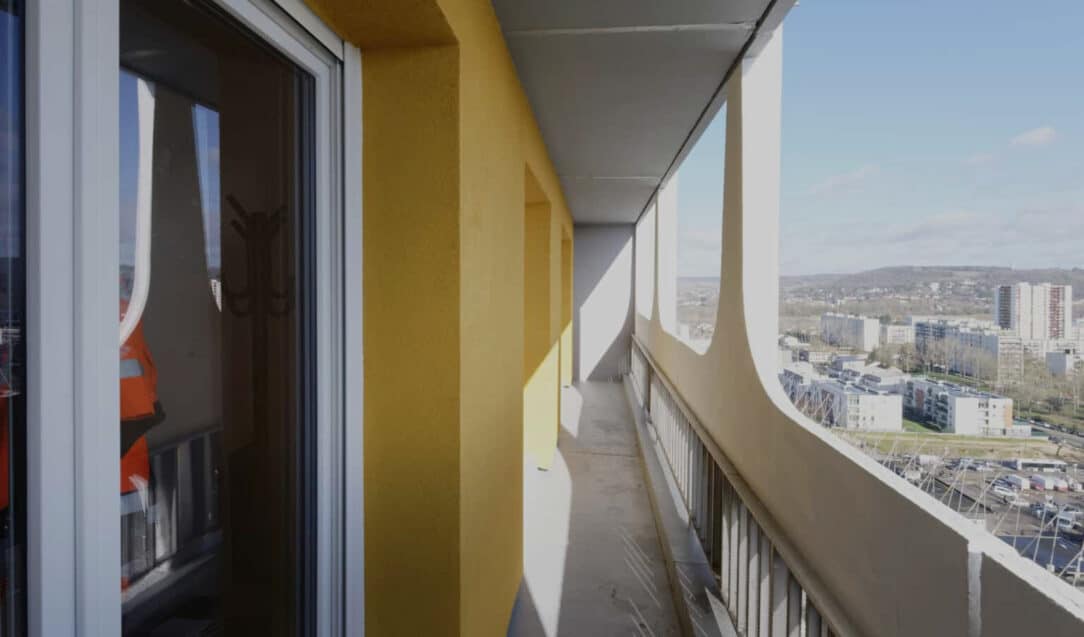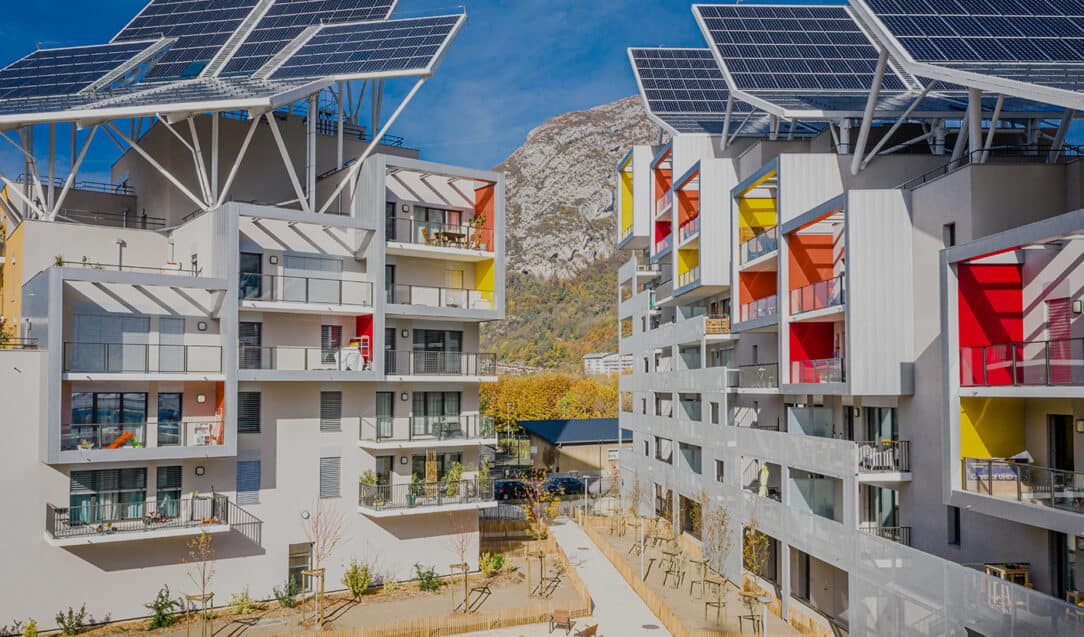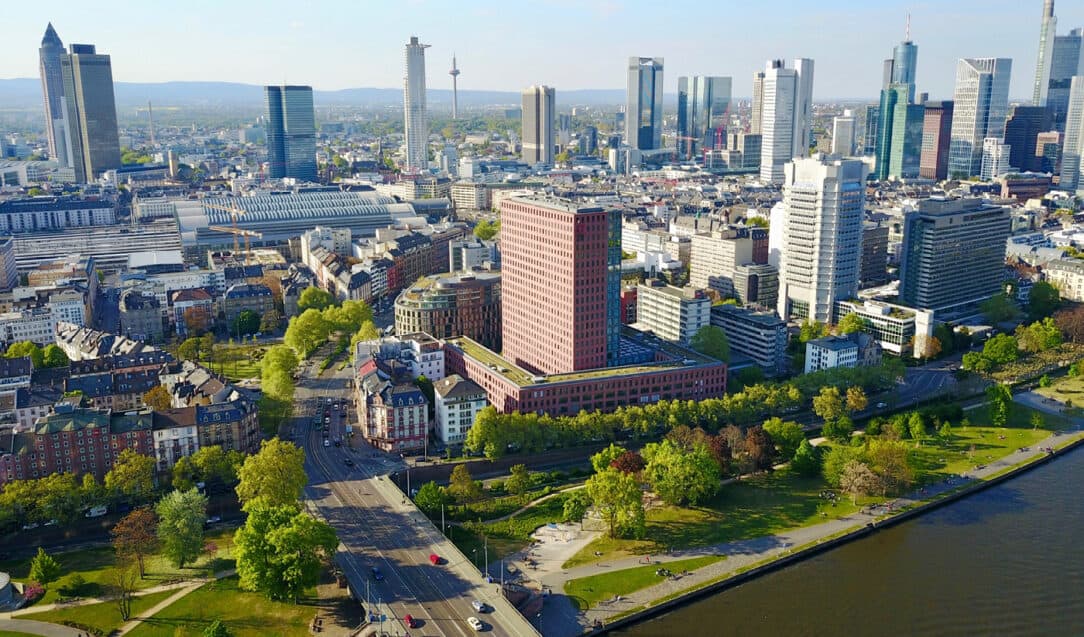What if virtual real estate became a reality in tomorrow’s Metaverse?
The year is 2032 and a billionaire media mogul writes a shocking book about making a fortune in under a decade by solely investing in virtual real estate and ultimately becoming one of the largest property owners in the Metaverse. He makes his fortune from the capital gains on reselling his virtual properties and from renting out his best positioned plots in these alternative worlds. The virtual property programmes that are set up there involve the best meta-space designers to create striking meta-architectural experiences. Is this fiction or a future reality?
What progress have we made on energy retrofitting?
Energy retrofitting is a vital part of the construction market and it is becoming a crucial issue for the planet. Christian de Nacquard, Director of R&D and Innovation and Energy Performance at Bouygues Bâtiment International, examines this type of operation.
Marie Vabre
After 10 years as a TV reporter, Marie completed a Master’s degree in Sustainable Development & Organizations at the University of Paris-Dauphine. This training allows her to better analyze the major global issues. Her teachers included IPCC researchers as well as experts such as Fabrice Bonnifet, director of Sustainable Development for the Bouygues group. Today, […]
In 2022, do you really need to move house to live differently?
This is all the more relevant after a pandemic, several lockdowns and ongoing remote working: lifestyles are changing. This context is one reason, but there are others! The desires and expectations of the French whether they’re home owners or tenants, are changing, driven by ecological concerns as well as a quest for meaning, well-being and a balance between work and home life. Changes to the household structure also bring their share of “new needs”, as does the significant ageing of the population. It is now housing and cities that need to be adapted or even reinvented, and residents who want to take the plunge into change! In addition, is moving house really the only alternative when you want to benefit from a home adapted to the current needs of each individual?
Nicolas Bouby
An architect by training and a graduate of ESSEC in Urban and Real Estate Management, Nicolas worked as an architect at MVRDV in Rotterdam and then at Atelier Aconcept in Evry. He joined the Bouygues Construction Foresight Lab between 2019 and 2022 to strengthen the “building” expertise and analyze how macro-trends and new uses shape […]
The car park: a new enabler for residents’ lives?
Originally, car parks were created around a need: vehicle parking. But today, at a time when the place of cars is being called into question in cities, the potential of these infrastructure networks opens up new prospects for building future cities.
Note de tendances : villes moyennes, villes à taille humaine
Beaucoup d’espoirs et d’attentes sont aujourd’hui fondés en cette ville moyenne, qui permettrait de concilier les avantages de la proximité avec un cadre de vie actif et attractif. Décryptage des enjeux et des leviers.
How digital twins can make cities more resilient
Territories are complex systems that are constantly evolving. Using digital technologies, we can model, simulate, visualise and experiment with the characteristics of a territory with the aim of making it easier to manage. The digital twin, a virtual replica of a territory as it operates, has great potential, so long as its needs are well targeted and relevant use cases are defined.
Hydrogen as a vector of energy flexibility in 2040
Energy will be a major issue in the 21st century. What is the vision of sustainability for 2040, and how can hydrogen contribute to it? Caroline Mazzoleni, Deputy Director of Hydrogen and Smart Energies at Bouygues Energies & Services, shares her thoughts on the subject with us.
Margot Schneider
A student in local geopolitics and territorial governance at the Paris Institute of Geopolitics, Margot joined the Foresight and Strategic Marketing Department of Bouygues Construction on a work-study basis, after two research studies carried out in French Guiana, on the border with Brazil, on subjects related to geopolitics and diplomacy. Today, she applies this scientific […]
The latest developments in low-carbon concrete
The first part of the 6th assessment report of the IPCC, published in August 2021, made blatantly clear how important it is for us to meet the commitments made under the Paris Agreement by limiting global warming to less than 2°C, preferably to 1.5°C, and to achieve carbon neutrality by 2050. The construction sector, one of the main emitters of greenhouse gases, is particularly concerned. It accounts for 19% of emissions in France (not including associated emissions such as electricity and heat production). At the heart of the sector’s low-carbon transition, the diversification and decarbonisation of building materials is an important lever: this covers the structuring of bio-sourced and geo-sourced materials, the development of solutions from the “dry sector” (reuse, prefabrication), and the emergence of new ranges of low-carbon concrete. The challenge is to be able to use the right material in the right place, according to the specific context of a given territory and a particular project. We turn the spotlight on low-carbon concrete: what processes and techniques does this term suggest and what does it promise?
Do technological carbon sinks provide a real lever against climate change?
Carbon sinks are essential tools for combating climate change. They raise issues of environmental protection and restoration as well as technological innovation. Some of them are natural, others man-made. But they all act to capture carbon and ultimately reduce air pollution. They have already been discussed in the “Carbon Resilience” trend note; in this article we will look at the prospects for technical development and the absorption capacity of the systems in place.
The RE 2020: what are the changes for housing in the future on the French market?
The arrival of the French regulation RE 2020 brings the goal of decarbonised cities even closer. The major new feature of this climate and energy package consists in not only considering energy savings at the level of every new construction, but also in including the carbon footprint in the various impact measures linked to these sites. This approach will not only allow us to transform our construction practices, but will also transform the way in which inhabitants in the future could take ownership of and live in their homes and the wider local area. So, what changes are coming? What are the possible impacts for the construction industry right now? And how will the way in which we live have to change?
Is the general public ready for second hand materials?
The refurbished market has been booming in recent years in every sector and - is reflecting changes in consumer habits. Increasingly, people are opting for everyday products and items which have already been used.
Bouygues Construction and PowiDian Mobility – a partnership supporting energy transition
Founded 2013, PowiDian has developed solid expertise in the integration of renewable hydrogen energy production and storage solutions through the design of autonomous and intelligent power systems. In 2021, the company announced its intention to expand its activities into sustainable transport with the development of a hydrogen vehicle. This was supported by Bouygues Construction.
Yoann Sportouch
Yoann Sportouch is the Managing Editor at Lumières de la ville media outlet and founder of LDV Studio Urbain. In 2014, he joined forces with Roland Castro and Faubourg communications agency to launch Lumières de la ville, a media outlet that explores the urban/human relationship. He is developing an editorial line entirely geared towards the […]
Joy Cordier
With 12 years of experience, including 5 in an agency, Joy is a Swiss Army knife in the writing world! Thanks to her expertise in complementary specialist fields (construction, housing, public works, materials, the environment, sustainable development, insulation, acoustics, regional planning, mobility, energy, innovation, CSR, etc.) and her versatility as- an editor, railroader, interviewer and […]
Guillaume Joly
Guillaume is a journalist who has specialised in the climate emergency field for more than 4 years. Committed to solution-based journalism and passionate about science and innovation, he is also the co-founder of Les Horizons, a monitoring and forecasting media outlet for companies and collectivities.












